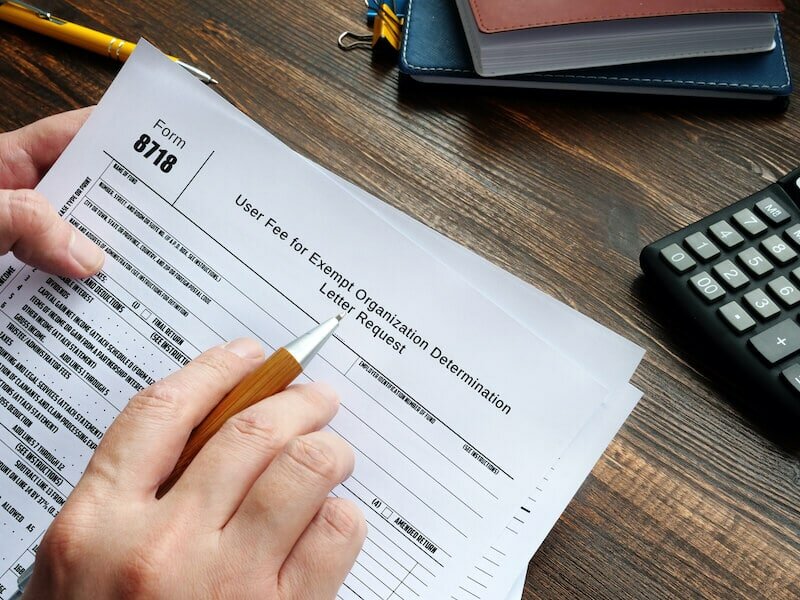Property tax in Bloomington has continued to increase due to the pandemic and the tremendous increase in home value. People continue to seek exemptions due to devastating effects and taking advantage of their circumstances more than ever.
For example, Hennepin County is well above the national average and the state of Minnesota when it comes to property taxes. In Hennepin County, for a typical home valued at $240,000, you will pay $3,072 in property taxes.
This article will detail everything you need to know about Bloomington, the property taxes in Hennepin County, and cash home buyers Minneapolis owners are looking for. In addition, qualifications and how you can start the exemption process are detailed.
Here’s your guide to property tax in Bloomington, MN, in 2022, and learn more about tax exemptions. Learn how to get the most out of your hard-earned money and save when it comes to your home property. Potential benefits are waiting if you are deemed eligible.

Property Taxes in Bloomington
Minnesota allows particular authority figures to appraise property market value, tax rates, and levy on taxes. Bloomington city council sets the tax rates according to these stipulations.
But, first, the appraisals ultimately affect payments, property estimations, billing, and various compliance issues. For example, property tax liens can cause you to not be able to sell your house until they are paid off.
According to the Property tax laws in MN, the requirements for the city of Bloomington include conducting periodic reappraisals, which have to be accessed. Then comes the assessment of property taxes for each. Without these inspections, the market and property value will not be accurate.
To properly assess, lists of non-exempt properties with their addresses will occur. The lists depend upon the size of the building, use, location, and age. After an assessment, tax rates and assessed value are formed and calculated.
As the past year has shown, property tax in Bloomington and residential and commercial properties have changed and will continue to rise. Based on a preliminary budget, the Bloomington property tax levy will continue to increase to 2.75% throughout 2022.
Bloomington’s tax levy makes up a third of the total tax bill for the city’s homeowners. The rest of that equation strictly goes to school tax.
Property tax revenue changed between the devastating effects of the pandemic and the intense housing market last year. As home value significantly increased, commercial properties decreased.
Therefore, it’s essential to factor in that it will not be taxable if you are a homeowner and choose to sell your home with cash.
As a state, Minnesota allows refunds of property tax depending on income. Additionally, another refund may be applicable after the value of a home increases compared to the following year.
All entities have individual tax rates, including schools, government, and water treatment stations in Bloomington, including tax exemptions.
Bloomington Property Tax Exemptions
Bloomington property tax exemptions are all taxable. However, there are several tax exemptions in Bloomington, MN. Tax exemptions go into separate categories and taxing districts.
School Exemptions
Schools exempt include public school districts, colleges, universities, academies, and learning seminaries.
Religious Exemptions
Religious exemptions include all churches, houses of worship, or any church property.
Public Exemptions
Public exemptions include burying grounds, hospitals, or institutions. Other exemptions include charity, transitional housing, electric power distribution, wind energy systems, and wastewater treatment systems.
Homestead Exemptions
You can fill out a homestead exemption for a tax break if you are a residential property owner. The rules include owning a home before January 1, 2020, and living in the house.

How to File for a Tax Exemption
You can apply for property tax exemption by filling out an application with the Bloomington City Assessor. However, churches and schools are not required to fill out an exemption application.
Instead, each owner must complete and gather information and records for the ownership. Then, verify if the property will qualify for property tax exemption.
You can fill out a property tax exemption for free. Although, a penalty may occur if the application isn’t filled correctly and on time.
Possible requested documents for tax exemption include the following:
- State application for property tax exemption
- Property deeds
- Income and expense statements
- IRS form 990 return
- Leases
- Written explanation of property intentions
Local government authorities can approve or deny, but ensuring you provide proper documentation is crucial.
Be prepared to wait weeks to a few months during the decision-making process. Upon the final decision, then you will receive a notification.
It’s important to note that you have the right to appeal the decision to the Minnesota Tax court. In addition, you may also go to the Local Board of Review.
The property included in property tax begins in January and is used for exemption before July 1 to qualify for the exemption. The property tax will resume next year if the exemption goes through.
Tax Exemptions in Hennepin County, MN
Residents in Hennepin County, Minnesota, became hit with high property tax rates within the last year. The high fees correlate with the continual rise of home values, with some homeowners seeing a 40% increase.
Hennepin County has higher property taxes at a tax rate of 1.28%, above the national average of 1.07%. While this is undoubtedly a big concern affecting many, there are property tax exemptions within the county to consider as well.
Homeowners in the area pay their property taxes according to their property value. Two types of taxes are market value levies and ones relied upon net tax.
In Hennepin County, Minnesota, all property is taxable under state law, with the tax exception of tribal lands. Deciding factors on property exemption include ownership, use, and necessity of the property.
Tax Exemptions in Hennepin County include the following:
- Public schools
- Private academies
- Universities
- Charitable organizations
- Public cemeteries
- Public hospitals
- Churches
- Domestic abuse shelters
- Baseball parks
- Any public property used for the general public
All schools, non-profits, churches, government, or charitable organizations must prove tax status of 501(c)(3) to qualify for an exemption.
No documentation is needed to file a general exemption for property tax. However, taxpayers may include all essential records regarding property ownership. These files will determine if the application is approved or denied.
Hennepin County has special programs regarding tax exemptions if you qualify.
First, veterans who have service-related disabilities can qualify for property tax reduction. To qualify, you must have a disability rating of 70% with an honorable discharge. Upon qualification, a decrease of $150,000 is possible off home value.
However, if your rating of disability is 100%, that home value reduction number can double to $300,000.
The second program includes suddenly damaged homes by half of their home value, and a property tax reduction is possible in this case. Property tax reductions are applied when damage appears or the following year.
Damage can be accidental or intentional. For instance, natural causes or vandalism both fall into these categories. Therefore, reporting the damage right away to the property’s assessor’s office is critical.
The assessor reviews the damage and results in a report. You will receive an application, along with a potential interview. After completing the Hennepin County application, make sure an insurance claim and any essential information are available.
While you wait, it’s vital to continue paying property taxes, local tax, and income tax until notified further.
In Conclusion
Bloomington and Hennepin County have increased property taxes. Real estate has shifted dramatically over the last few years.
Alternatives are available while we are in a spike regarding homeownership and taxes. Therefore, it’s essential to weigh all options, and the sooner you take action, the better outcome.
If you suspect a possible property tax error, the first step is to go online and compare rates within the area. Next, it may be time to appeal and file a tax exemption.
It’s essential to be vigilant regarding finances and property taxes. No matter the property’s value, you can see a significant increase, so it’s time to act. If you’re ready to sell and asking, “buy my house, Minnesota!” you can take advantage of the increase in the housing market and sell today!
Appealing tax exceptions are becoming more common, and more resources to help. So avoid financial distress, and check if you are eligible for an exemption today.
